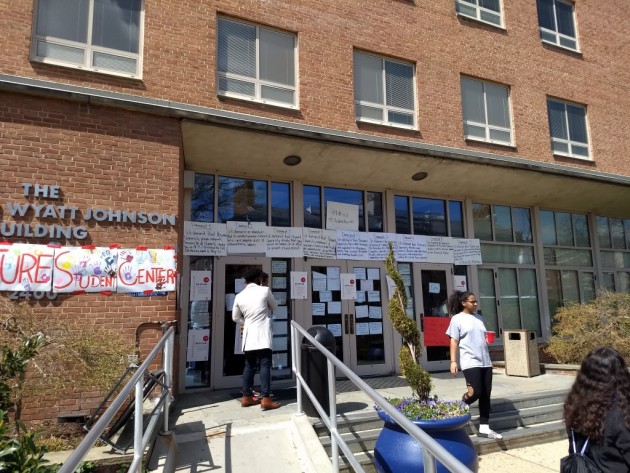Some believe racism was an issue conquered since the Civil Rights Movement and that those still concentrating on it are stuck in memories of the past. However, the slow response for the victims of Hurricane Katrina and the recent death of civil rights leader Rosa Parks have brought notions of racism back to the forefront of America.
The organizers of National Take Affirmative Action Day (NTAAD) believe that racism has had a perpetuated existence in America and that the need for Affirmative Action is relevant and necessary. "Reclaiming Access," the theme for this year’s NTAAD, sponsored by the United States Student Association (USSA) was held at Howard University on Oct. 27 as well as 60 other campuses across 20 states and the District of Columbia.
The USSA is the country’s oldest student organization and the voice for students on Capitol Hill. USSA pioneered NTAAD in 2001 to ensure equal opportunity for all minority students and to encourage them to stand in solidarity for affirmative action. Students gathered to ensure that their college and university administrators strengthen equal opportunity programs for students of color.
"The youth need to step up and do something for ourselves, the solution is for students to build coalitions and campaigns that train and mobilize students on a consistent basis; one organization can’t do it on their own," says Irene B. Schwoeffermann, director of the Students of Color Campus Diversity Project. Although the U.S. Supreme Court upheld affirmative action in Grutter v. Bollinger (2003), retention and recruitment programs for minorities are still under continuous attack.
According to Christopher Sweeten, a speaker at NTAAD, the state of California is a great example of the collegiate experience without affirmative action. After the passing of proposition 209 in 1998 which outlawed affirmative action in California, the enrollment of minority students in college plummeted from a small 4% to a microscopic .9% in 2005. Sweenten went further to point out that currently at the University of California there are 23,000 students, of those 400 are African American and only 23 of them are males.
Felicia Cruz, a student from the University of California Santa Barbara said that, "at out university the administrations lack of minority recruitment is so bad that students have been forced to take proactive measures of their own to recruit high school students of color."
"I’m for equal access, and affirmative action in all forms. Black people have been historically targeted and disenfranchised on several levels from prenatal care to unemployment to education," says Stephanie Brown, National Outreach Coordinator for Global Justice.
"Sudents have to get past the stereotypes associated with affirmative action like the filling of quotas and racial preferences, in order to see that equal access for all is a right,” said Akilah Swinton, a senior majoring in Psychology at Howard.


